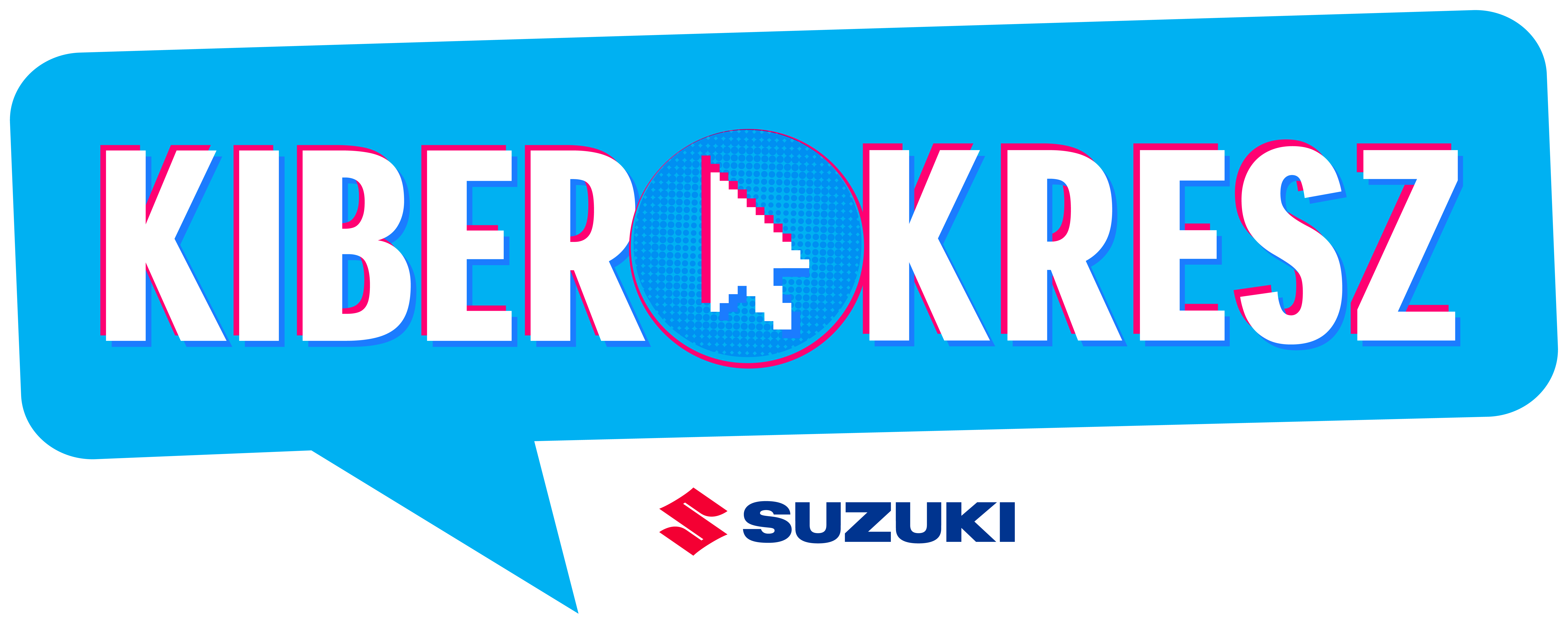news
Cyber Highway Code: How To Spot Signs Of Online Bullying
As a result of the pandemic, during the quarantine period, children spent up to 50% more time online, thus, the rate of online bullying may have increased by up to 70% in Hungary. The online world is like traffic. On the road, various traffic signs bring our attention to dangers and rules, and similar signs can be found in digital space—but it is important to recognize them. UNICEF Hungary’s Cyber Együtt a sértő hangok elllen (Together Against Bullying Speech) campaign, including cyber Highway Code, aims to help with this. Magyar Suzuki Corporation for the second year in a row, has joined this initiative, which aims to help prevent and handle any cyber bullying via a 3-episode webinar series, a TikTok campaign, an online course that can be subscribed to on the UNICEF website, as well as a HelpApp developed for children.
The pandemic brought with it the introduction of online education and a lack of personal contact, which resulted in children becoming Internet users all too soon, before they could have been optimally prepared for it in knowledge or skills. Also, the time they spend in cyber space has also increased, by up to 50%, according to some studies. For the youngest generation, Internet is their “connection to the world”, and they manage their social relationships by navigating its “highways”. Studies have also shown that the causes that can lead to someone becoming either a bully or a victim are actually similar: lack of social relations or friends, loneliness, bad mental health, and impulsive personality. As a result, according to international estimates, online bullying may have increased by up to 70% in 2021. Surveys have shown that in Hungary, every third child becomes a victim of cyberbullying. Thus in 2021, as before in 2020, one of the greatest challenges in protecting children worldwide has been the fight against online child abuse.
Guidance is necessary on the road as well as in cyberspace
As part of the campaign, UNICEF has created a webinar series, as well as an online course with the participation of its young ambassadors, to help adults know how to act in case a child becomes a victim or a perpetrator of bullying. A series of presentations by experts, held between 21 October and 4 November 2021, deal with 3 topics (The psychology of cyberbullying, Security in cyberspace from a general IT standpoint, Legal panel), and features renowned experts such as Orsolya Táler (Kék Vonal Gyermekkrízis Alapítvány), Réka B. Nagy (singer, influencer), Annamária Tari (clinical psychologist), Csenge Cseperkáló (UNICEF Hungary Young Ambassador), Gergő Fegyverneki (media educator), Szabó Vera (feat. agency), Viola Szlankó (psychologist, Head of Child Protection at UNICEF Hungary), Judit Fribék (police captain), and József Balatoni, aka „Jocó bácsi” (teacher, influencer). The first conversation is already available for listening, but later all three parts of the webinar will be available at any time, and those who subscribe to the campaign page will receive the videos and online course materials.
TikTok campaign “Együtt a sértő hangok ellen” (Together Against Bullying Speech) was launched this summer. In Hungary, TikTok has 1.6 million users, mostly 11 to 18 years of age, and video content tagged with #sértőhangok (#bullyingspeech) has been viewed more than 2.7 million times to date. The number of videos created using the audio track has exceeded 430, and more than 7,800 TikTok users have started following the @unicefhungary profile created for the World Day.
Webinars from last year have appeared nearly 7 million times, and 72,429 users have clicked on them. 77 influencers and opinion-forming think tanks have posted on Instagram, and 33 of them on Facebook, resulting in 118 posts. Based on last year’s results, the message has reached a growing number of parents and children, but there is still a lot to do, so the campaign continues.
Responsible Behavior
“It is important to educate children and young people to use Internet consciously and responsibly, and teach them to communicate and treat others respectfully in the online space as well. If we teach them at an early age how to behave in the online world, later, in their adult years, they can leverage this knowledge in a number of everyday situations, including their behavior during driving. Wherever we are, responsible behavior is the best safety belt,” explained Zsuzsanna Bonnár-Csonka, Head of Communications at Magyar Suzuki Corporation why Magyar Suzuki Zrt. is the leading sponsor of UNICEF Hungary’s anti-cyberbullying campaign for the second year in a row. “As an automotive manufacturer, we do everything in our power to ensure safety, however, beyond a certain point, only road users have an influence on this. Responsible behavior is important, and not just on the roads. It is an attitude that is also essential for young people, who are active in the online community, and are particularly sensitive. This is why we as automotive manufacturers consider it important to play a role in educating and preparing Hungarian people in this area.”
Discussions of the webinars started from 21 October are available here:
1. The psychology of cyberbullying
2. Security in cyberspace from a general IT standpoint
3. Legal panel



